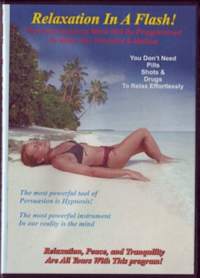|
Many people use the terms "stress" and "anxiety"
interchangeably, but they are actually two separate conditions. Stress is a response to a stimulus, either internal or external. You may feel stress because you are frustrated with something (like waiting in line behind a slow person) or when you are worried that you won't meet expectations (such as missing a deadline).
Anxiety, on the other hand, is a feeling of nervousness and fear or even dread. It can be brought on by negative thoughts and expectations, or as a reaction to stress. You may feel anxious all of the time and not understand why, or your worry may be a reaction to something you are nervous about, like an upcoming journey.
Abnormal levels of certain neurotransmitters in the brain can cause generalized anxiety. Some research indicates that anxiety can be brought on genetically. In addition, anxiety can be induced environmentally, as when the child of a parent who is often anxious learns to be an anxious person by observing the parent. But very often the core cause of anxiety is simply the thoughts that a person is thinking!
Anxiety and Stress Are
Subjective Conditions
Anxiety and stress are subjective conditions. Different people may feel stressed about different situations, and different people may react to their anxiousness in very different ways. Symptoms of anxiety can range from the mild, such as sweaty hands and tense muscles, to the severe, such as vomiting, irregular heartbeat, and anxiety attack.
Everyone feels some amount of anxiety from time to time. We have all felt the dry mouth and vague sense of dread before a test or public speaking engagement. But when does it become harmful to your health? Studies have shown that prolonged anxiety can lead to sleep disorders, depression, high blood pressure, and relationship problems.
For sufferers of long-term untreated anxiety, there may be negative health consequences that have yet to be explored fully. Some studies have found a link between chronic anxiety and a number of serious health conditions including cancer, heart disease, arthritis, thyroid disease, and respiratory illness. Chronically anxious people may even be more likely to suffer a fatal cardiac attack.
You May Have An Anxiety Disorder
If you suffer from what seems like a disproportionately high amount of anxiety relative to the situation, or if you feel anxious nearly every day, you may actually have an anxiety disorder. Anxiety disorders are chronic conditions characterized by an individual's inability to function normally because of frequent anxiety. Anxiety disorders are serious conditions that should be treated to reduce the risk of long-term effects.
Anxiety treatment has long been the subject of much debate in the medical community. Some medical professionals believe that medication is the best way to handle chronic anxiety. However, anti-anxiety medications often produce side effects that are just as bad as or even worse than the initial condition.
There are plenty of natural ways to handle negative emotional
responses. Exercise is one that is often overlooked by anxious people, but it is very effective.
Exercise causes your body to release endorphins, which are
natural pain-killing and mood-boosting chemicals. With regular aerobic exercise, you may begin to see a decrease in negative emotional reactions to situations that would have previously made you very anxious.
The Most Effective Way To
Deal With Tension and Worry
The most effective way to deal with tension and worry is to control it from the inside out. Stress management and stress relief techniques are extremely useful in handling day-to-day stress. These techniques can teach you to calm yourself and let the tension leave your body. You make a conscious effort to slow your breathing, release the worry, and remain in a calm state of mind. Meditation is a fantastic form of tension control in which you practice mindful relaxation and deep, calming breathing.
However, if you want a proactive solution to free yourself of anxiety, hypnosis is the best treatment option. When an individual undergoes hypnotherapy, their reactions and emotional responses to events are changed at their core. This allows them to handle common anxiety-inducing triggers without the typical fear and nervousness.
Hypnosis can be performed by a licensed consulting hypnotist in a series of regular treatments. More commonly today, hypnosis takes the form of self hypnosis programs which can be purchased in the form of CDs, DVDs, or MP3s for individual home usage. No special skills are required to perform self hypnosis. All that you need is a way to play the hypnosis program and a quiet place where you can relax and listen.
Another very successful type of anxiety treatment is Neuro-Linguistic Programming, or
NLP. NLP is a type of treatment that can help you retrain yourself to naturally react to situations in a more positive way. You can consciously decide to be calm rather than anxious, which means that you are always in control of your own emotions.
Conclusion
In summary, it's easy to see that it is very important to control our negative emotional responses in order to stay healthy. Learning to deal with fear and nervousness may even add precious years onto your life. To treat chronic anxiety, the best course of action is to
utilize hypnotherapy to change our attitudes and reactions at the core. Then, practice stress management techniques as needed to stay calm in everyday situations.
© 2008 By Alan B. Densky, CH. This document may NOT be re-printed without permission. All Rights Reserved. We are happy to syndicate our articles to approved websites.

Alan B. Densky,
CH is an NGH certified consulting hypnotist. He offers a complete line of stress elimination hypnotherapy CDs, and advanced anxiety elimination CDs through his Neuro-VISION self hypnosis website. You can visit his video hypnosis blog, and download a free MP3.
|


